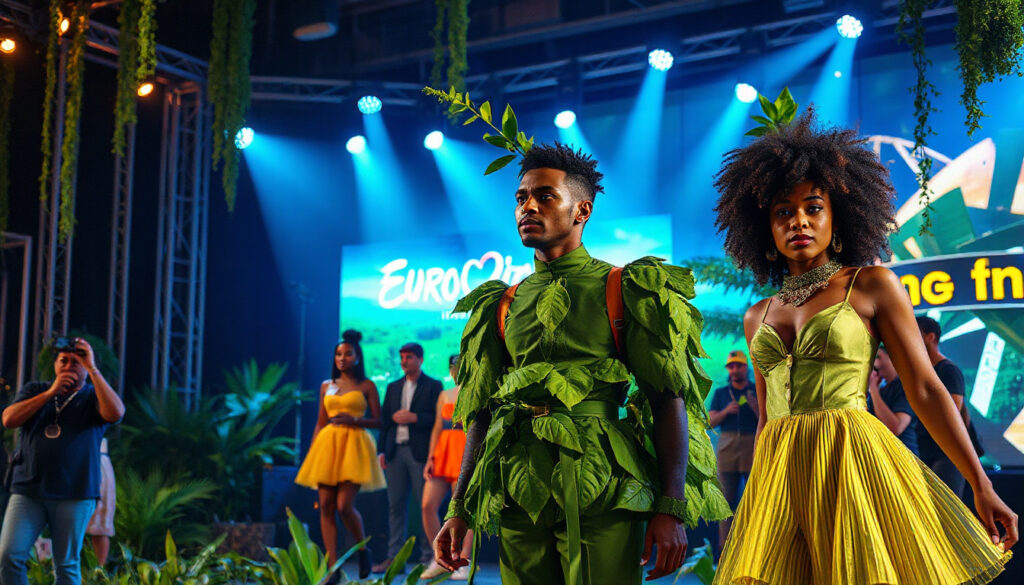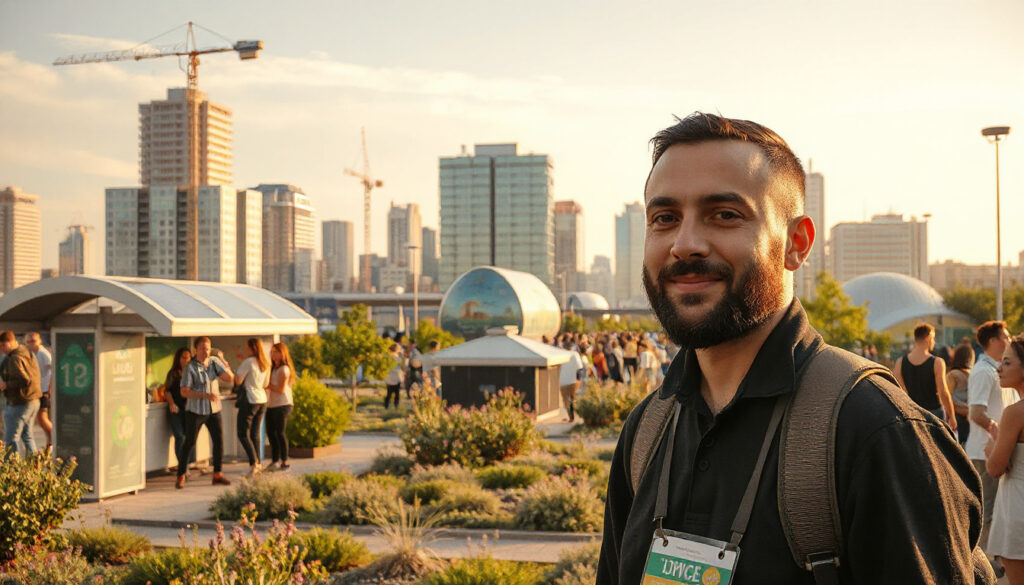Planning and hosting an event like the Eurovision Song Contest takes more than just bright shows and catchy songs. The 2025 show in Basel set high marks on sustainability and gave many clear lessons for 2026. These steps help us see how big events can cut their hit on the earth while building care for people and strong local business support.

Here is why the 2026 plan for sustainability matters and which parts it will stress. This plan comes from careful work done in Eurovision 2025. ## Key Themes and Actionable Insights for Eurovision 2026 Sustainability Initiatives
1. All-Round Sustainability: Tying Nature, Community, and Business
Sustainability at Eurovision links the care for nature, the care for people, and smart business plans.
- • Nature: Cut carbon gas, shrink waste, back clean energy, and use food from the area.
- • Community: Make spaces safe and easy to get around for all, no matter their needs or background.
- • Business: Make sure all steps work in the money world so that benefits can stay over time.
Mixing these three parts makes sure that green acts work well and can grow in size, not just stand for a look.
2. Zero-Emission Travel and Smart Movement Plans
Travel makes a big hit on carbon gas and waste. In 2025, Basel showed how clean travel can fit into an event.
- Fans got free trips on trams, buses, and trains in Basel and nearby areas.
- Extra trains and night buses let guests come and leave in a smooth way, with no need for private cars.
- Cheaper long-distance train rides pushed lower gas travel.
- The plan helped riders use bikes or walk, with easy rental bikes and clear bike lanes.
This plan matters because how we travel sets the event’s gas hit. Eurovision 2026 will push more battery cars and smart travel steps.
3. Cutting Waste and Using Things Again
The plan in Basel worked hard on waste:
- They stopped using single-use plastic like cups and cutlery.
- Food and drinks came on cups and plates that one could wash and bring back.
- Stations for sorting trash had helpers called “Sustainability Heroes” to guide the right steps.
- They used and rented old items for shows, so no new things had to be made.
- Leftover food went to local centers, and what to serve was set to shrink waste.
These acts not only cut down trash but also start a way of care that fans can take with them later.
4. Fair Food Plans
Food plays a strong part in how green an event can be. Eurovision 2025 showed that with food you can cut down on gas hits from making meat.
- At least 75% of the food on menus came from plant-based meals.
- Ingredients came mostly from a small range around the area, helping local farms and cutting travel gas.
- Water was given from fountains and refill points to cut the need for plastic bottles.
- Leftover food also went to those who need a meal.
The point is plain: good food that is kind to the earth can work well and please guests.
5. Easy Access, Welcoming Places, and Safety for All
Eurovision is a world show of many faces, so care for people also means safe and fair space:
- Venues worked to be easy for wheelchairs, had toilets for all genders, and set spots for those with sensory needs.
- Staff and helpers learned to work against bias and to back all groups.
- Aid was given all day by teams ready to help anyone hurt by hate or harm.
- Tech, like live streams with sign and sound help, made the show clear for all eyes and ears.
These parts build a feel of care where each one feels seen and safe—a mark for future events.
6. Open Steps, Shared Learnings, and a Lasting Mark
Basel did its work with steps that all could check:
- Detailed reports on green moves told what worked and what needs work.
- Teams from radio, city help, sponsors, and locals joined hands on green projects.
- The Green Motion Label was earned to set a check on the show’s green work from start to finish.
This open style builds trust and sets the path for even higher green goals in Eurovision 2026 and the years that come next.
What Eurovision 2026 Can Learn and Apply
Using Basel as a guide, Eurovision 2026 in Vienna can pick from these steps:
- Push green travel by adding more battery run cars for work and by favoring rides that share cars.
- Invest in tougher steps to use things again, like using items that break down or finding clean energy at the event.
- Build more plans to help all people, from training for fair work to more tools that help with access.
- Join with global partners on green ideas to set common green checkpoints.
- Add ways to track in real time and put up public charts that let fans see progress and join in.
These steps help Eurovision stay as both a show of music and a scene of care for the earth and its people.
Next Steps: How You Can Join Eurovision’s Green Journey
Fans and guests play a key role in making Eurovision green:
- Choose trains, buses, or shared rides when heading to shows.
- Use cups, bottles, and plates that you can wash at the venues.
- Follow guides for sorting waste and clean up spots after use.
- Back local green shops and try tours that show clean travel in the city.
- Carry the spirit of the show by giving respect to all who join.
When many act in this way, Eurovision shows how a big show can care for the earth and its people.
Eurovision 2026 now steps forward with a strong green plan born in Basel. With clear ideas on travel, waste cut, fair food, care for all, and open work, the contest shows how to put on a big show with care for our world and its people.







